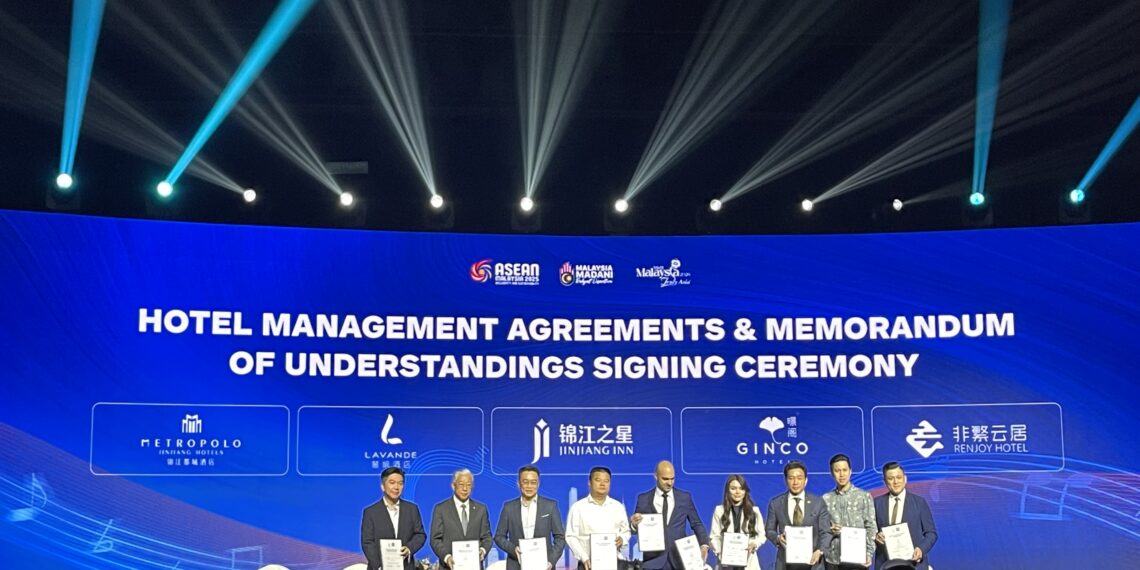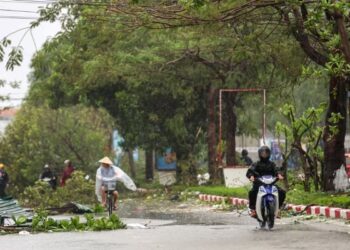Select Language:
Jin Jiang International Hotels, the world’s second-largest hotel group by the number of properties, has secured a significant partnership with a Malaysian hospitality and lifestyle company, signifying a strategic push into the expanding Southeast Asian market.
The Chinese-based hotel company announced today that it has entered into a management licensing agreement with RJJ Hotels, a subsidiary of the Malaysian hotel management firm Riyaz. Under this agreement, RJJ Hotels is authorized to operate five of Jin Jiang’s hotel brands, with plans to collaborate on developing around 150 hotels over the next five years.
During the signing event, RJJ Hotels also finalized 11 agreements and non-binding accords with other hoteliers and investors across Southeast Asia.
The project scheduled to launch first is a hotel in Luang Prabang, Laos, operating under Jin Jiang’s Metropolo brand, set to open early next year. The company also aims to develop new projects independently in the region, targeting the management of more than 500 hotels there within five years, including the deal with RJJ Hotels.
Since the pandemic, Chinese tourism to Southeast Asia has seen a strong rebound, with countries such as Malaysia, Thailand, and Indonesia attracting the most visitors due to their proximity to China and relaxed visa policies. International travel has resumed robustly, and domestic tourism is on the rise.
“ Southeast Asia is a key growth area for us,” said a company executive. “Our partnership with the Riyaz Group will support our long-term strategic presence in the region, allowing us to leverage global resources to foster local development and innovate hotel offerings.”
This move marks the company’s first major coordinated international expansion. An industry insider mentioned that the initiative extends beyond just brand licensing, utilizing the company’s global procurement and travel service platforms to ensure smooth project implementation.
“The overseas expansion reflects the integrated efforts of brand management, supply chain, travel services, and regional coordination,” explained a tourism industry analyst. “It will help facilitate the overall growth of related products and services in Southeast Asia.”







